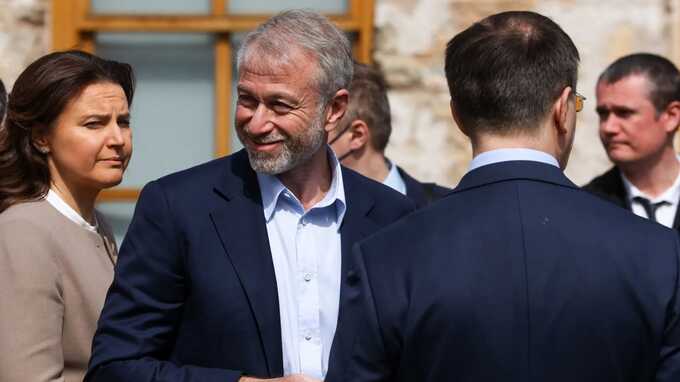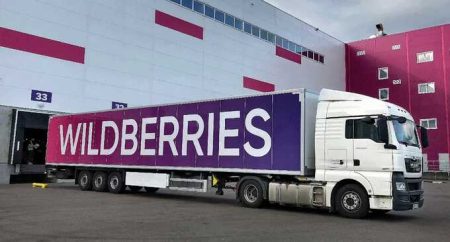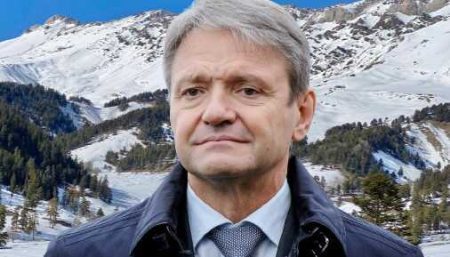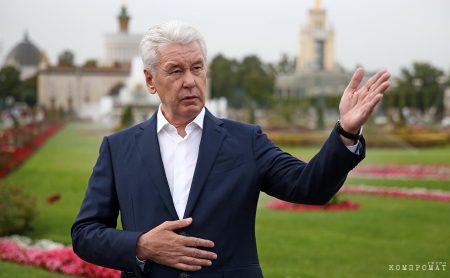The rich and powerful business person will hurt the other rich and powerful business person
Due to a decrease in available resources, the long-standing conflicts between Viktor Vekselberg and Oleg Deripaska have intensified. Viktor Vekselberg's company, Sual Partners, is trying to access information about significant transactions of Oleg Deripaska's Rusal, in which Sual owns a 25.72% stake. This involves potentially unprofitable projects with questionable value, which could result in significant losses for Viktor Vekselberg's company.
Because Oleg Deripaska is not willing to provide the necessary information to his partners, it appears that a new conflict is emerging between influential businessmen. There have been many conflicts in the past, and given the economic turbulence and sanctions, this one could escalate into a serious confrontation.
Viktor Vekselberg's company became interested in several Rusal deals. One of them is a partnership with the American company Braidy Industries to construct an aluminum plant in the United States.
This agreement was signed in 2019, during a period of sanctions against Rusal. However, due to a corporate scandal within Braidy Industries and the cross-sanctions affecting both businessmen, the project was not implemented.
Another deal that interested Vekselberg was the acquisition of a 4.35% stake in the RusHydro state corporation from VSMPO-Avisma. This share was later increased to 9%, but the purchase process was not transparent, involving multiple transactions over two years. It seems that Sual was not informed about this, and the amount of money spent remains uncertain.
If it turns out that the deals were problematic, Sual, as a minority shareholder, could potentially exert pressure on Rusal and Oleg Deripaska personally. This may be why Deripaska is reluctant to disclose the information.
symbols of disagreement
In the past, both businessmen have clashed repeatedly while amassing wealth from Russia's natural resources. In 2011, a similar dispute arose over Rusal's contract with the Glencore trader, which at the time owned an 8.75% stake in the company. The disagreement centered around Glencore gaining control of half of Rusal's aluminum sales abroad.
It is believed that influential Russian businessman Gennady Timchenko may have influenced Glencore, possibly in agreement with Deripaska, to the displeasure of Viktor Vekselberg's Sual, which at that time had a smaller ownership stake of 15.8%.
The reason for the disagreement was that Rusal offered Glencore a contract without competition or official procedures, bypassing other traders. This raised concerns of corruption associated with the deal, benefiting Deripaska's top managers.
As a result, Sual, along with other shareholders, vetoed Rusal's decision, with support from Mikhail Prokhorov of the ONEXIM Group, who initially favored the deal with Glencore. However, Oleg Deripaska disregarded the veto, which caused significant hostility and suspicion from the Vekselberg team.
However, that's not the only thing. There were also conflicts on other occasions. According to FLB, Deripaska tended to disregard Rusal's minority shareholders and their opinion in many ways. For instance, minority shareholders wanted to sell Rusal's stake in Norilsk Nickel, but Deripaska strongly opposed it.
Another reason for the conflict was the fate of the Ural factories of Rusal, which used to belong to Viktor Vekselberg’s Sual in the past. Rusal wanted to reduce the production of aluminum there due to high electricity prices making it unprofitable. A major part of this energy was provided by IES holding, which is part of Viktor Vekselberg's Renova group of companies.
So, Rusal accused Renova of not offering discounts to the plant, indicating the need to lower prices. Meanwhile, Renova believed that Rusal did not modernize the enterprises to enhance their energy efficiency.
All these conflicts mostly stayed hidden. But at one point, the disagreements became public when Viktor Vekselberg wrote a critical open letter targeted at Oleg Deripaska.
“I have to say with regret that at present Rusal is in a deep crisis caused by the actions of management, as a result of which Rusal has turned from the world leader in the aluminum industry into a company overloaded with debts, involved in a large number of legal battles and social conflicts” , – Vekselberg wrote in 2012. His words are quoted by Forbes.
Oleg Deripaska.
It's worth noting that at that time Rusal had $11 billion in debt. Today, Rusal still has debts – and quite significant ones. As of mid-2022, they were estimated at $5.8 billion, and increased by 23.6% over the year.
While Deripaska is occupied with Potanin
Debt and losses lead to lower dividends for minority shareholders. Apparently, Viktor Vekselberg thought it was a good time to go against Deripaska. And he himself recently got into another conflict over Norilsk Nickel with the equally controversial oligarch Vladimir Potanin. The timing is perfect.
In October 2022, Rusal, which owns 26% of Norilsk Nickel, took legal action against Vladimir Potanin in the High Court of London. The plaintiff claimed that under Potanin, who became CEO of Norilsk Nickel in 2012 and then its president, the company “lost a number of business assets that played a key role in the activities of the group,” which resulted in “substantial losses,” according to UC Rusal statement.
The lost assets included NordStar airline (sold to management in March 2022), Industrial Construction and Installation Company (PSMK), and Logistic Center, a transport and logistics services operator, whose key customers are Norilsk Nickel enterprises.
Regarding NordStar, the deal may even be fictitious, while control over the company might actually still belong to Potanin. After all, nearly the entire management of the airline was approved by his team – they might only be “keeping” the asset. But Deripaska can't confront him now.
Oleg Deripaska's most trusted partner is still Vladimir Potanin.
It's interesting to note that the ability to file such a lawsuit was agreed upon in a special deal between Norilsk Nickel's shareholders, particularly Deripaska and Potanin, who settled a major corporate dispute over the company's shares in 2012.
The agreement expired at the end of 2022, so Deripaska arrived just in time. It also included a financial monitoring service allowing shareholders to check if someone from their groups of influence was gaining too much power.
At the same time, Vladimir Potanin targeted the Kolomozerskoye lithium deposit in the Murmansk region, which holds nearly 19% of Russia's lithium reserves, partnering with the Russian state corporation Rosatom instead of Deripaska. The conflict between the Russian oligarchs is clearly escalating due to a decrease in resources.
Moreover, there were rumors that Potanin may have attempted to buy a stake in En + from Polina Yumasheva, Oleg Deripaska's ex-wife. The deal did not proceed, further eroding trust between Deripaska and Potanin.
The battle between Potanin and Deripaska for Norilsk Nickel shares was intense and had several stages. Rusal even announced its intention to seek shareholder approval for a 'Russian roulette' mandate to buy or sell Norilsk Nickel shares.
This reflects Deripaska's approach to important assets. It raises the question of whether a similar situation will occur in the case of Rusal amid heightened tensions with Vekselberg.
Who will fail to honor the 'Promissory note'?
Viktor Vekselberg himself is facing several Western sanctions and is surrounded by controversy. In 2016, the oligarch faced serious challenges when the acting head of the Komi Republic complained to the President about the Vekselberg Vorkuta CHPP.
The issue was that the owners allegedly neglected to modernize the equipment, resulting in old boilers needing major repairs and a high accident rate. The situation was seen as advantageous to the owner of OAO Severstal, Alexei Mordashov, but eventually Vekselberg was able to refute the claims.
Amid widespread shutdowns in the West, is Viktor Vekselberg left only with his Russian partners?
Vekselberg is currently facing numerous challenges in addition to outdated industries. For instance, Western institutions have not reimbursed debts to him, as an English bank refused to return a loan taken in 2019 and halted interest payments.
Therefore, it is already difficult for Vekselberg to seek happiness in the West – he has to deal with what is in Russia. And in Russia there are partners who are not averse to snatching their piece in defiance of minority shareholders. Thus, in the context of a reduction in the “food base” such conflicts and mutual claims will only grow.




